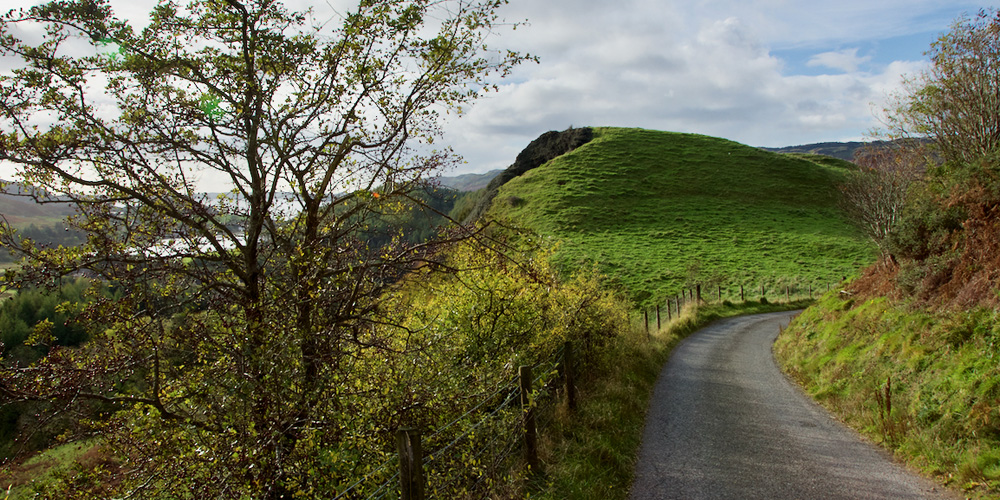
The road to Loch Avich
The minor road that snakes its way from Kilmelford over to Dalavich is one of my favourites, because it seems to go absolutely nowhere, and you can get totally transported just admiring the scenery and forgetting that you have things to do. It’s also full of potholes, so you don’t need to be in much of a hurry.
You turn off the main road by the shop in Kilmelford, and immediately you feel as if you’ve driven into someone’s back garden. If you persevere, however, and brave a couple of hairpin bends, the road soon lifts you up above the coast, with far-reaching views looking back across Loch Melfort.
On patches of moorland, old and new forestry plantations with regimented stands of conifers mingle with oak, hazel and beech, burnished now with the glow of autumn. With the first frosts, the bracken has finally given up the struggle and is turning a rich brown, its fronds broken and drooping, but the last relics are still capable of filtering the afternoon sun like shards of golden glass.
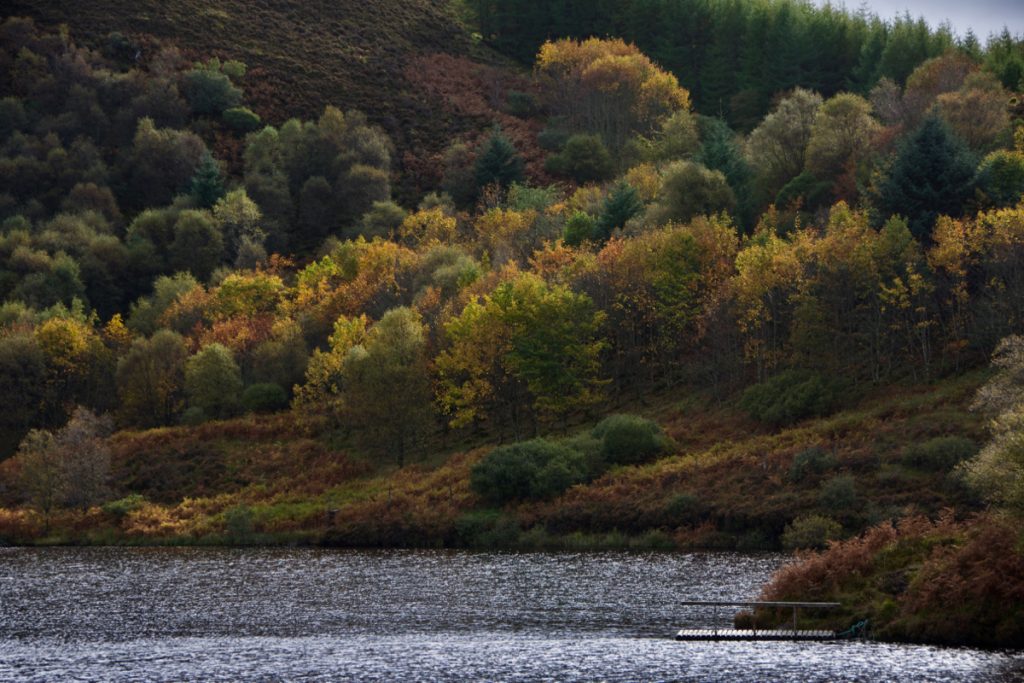 As the road dipped into a hollow, an old tree caught our attention at the same moment and we pulled over to take a closer look. Clusters of bright red berries hung from lichen-covered twigs, while its shape and habit suggested a great age. Cherry? Crab apple? In both cases, the fruits seemed too small – they were about the size of rowan berries, held singly on long stalks that were, in many cases, as red as the fruits themselves. The leaves were reminiscent of apple, but with a longer tip… and the fruits were a mystery.
As the road dipped into a hollow, an old tree caught our attention at the same moment and we pulled over to take a closer look. Clusters of bright red berries hung from lichen-covered twigs, while its shape and habit suggested a great age. Cherry? Crab apple? In both cases, the fruits seemed too small – they were about the size of rowan berries, held singly on long stalks that were, in many cases, as red as the fruits themselves. The leaves were reminiscent of apple, but with a longer tip… and the fruits were a mystery.
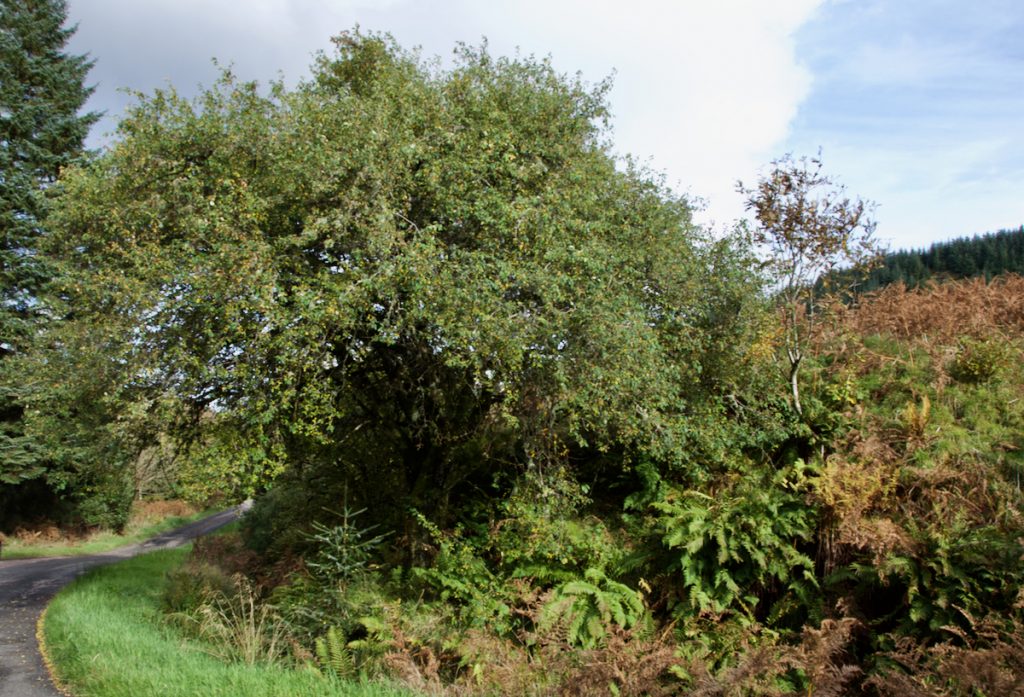
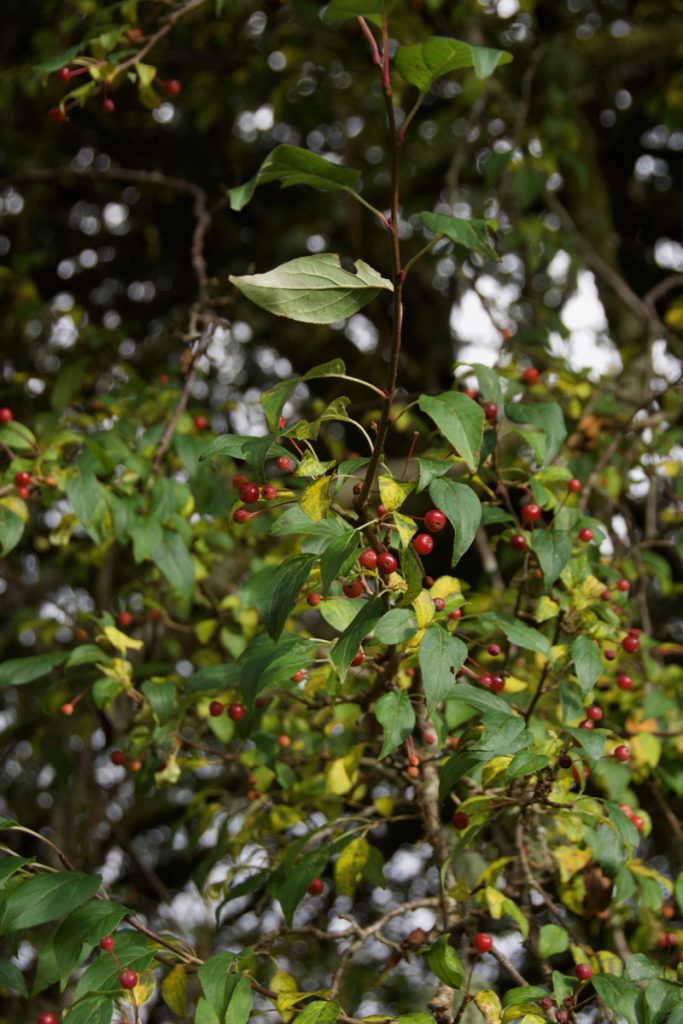 A little further on, we discovered some more of these venerable trees: two on the right-hand side were feathered with silvery lichen and festooned with berries, while on the other side of the road a particularly old-looking specimen was anchored to the ground by steel cables attached to its lower branches. This only increased our curiosity, because surely they must be unusual trees to deserve such attention. We’ve since examined our reference books and can only conclude that they are Siberian crab apples (Malus baccata) – a species which was introduced into Britain in the 18th century. An article by Rick Worrell in the Journal of ‘Reforesting Scotland’ gives more information on Scotland’s varieties of crab apples and their rather daunting ability to cross-breed.
A little further on, we discovered some more of these venerable trees: two on the right-hand side were feathered with silvery lichen and festooned with berries, while on the other side of the road a particularly old-looking specimen was anchored to the ground by steel cables attached to its lower branches. This only increased our curiosity, because surely they must be unusual trees to deserve such attention. We’ve since examined our reference books and can only conclude that they are Siberian crab apples (Malus baccata) – a species which was introduced into Britain in the 18th century. An article by Rick Worrell in the Journal of ‘Reforesting Scotland’ gives more information on Scotland’s varieties of crab apples and their rather daunting ability to cross-breed.
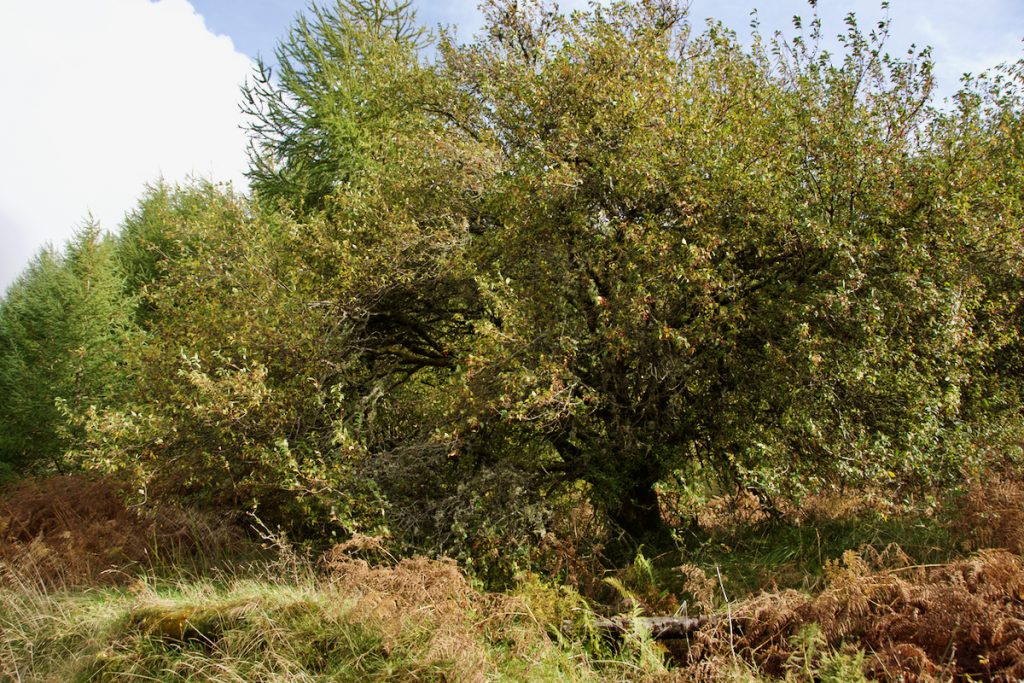
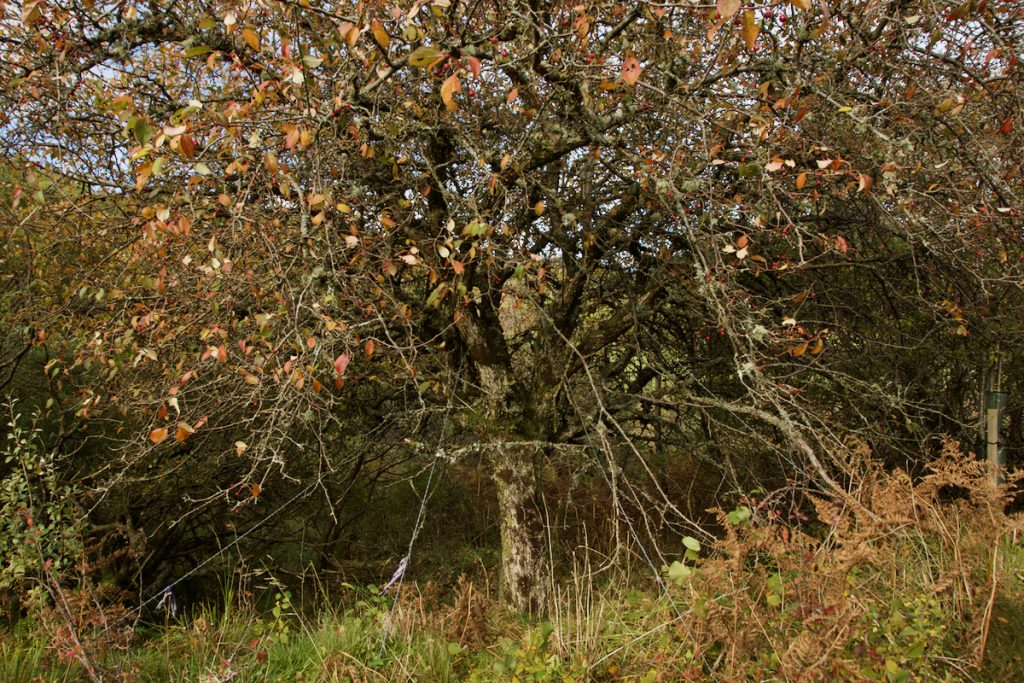
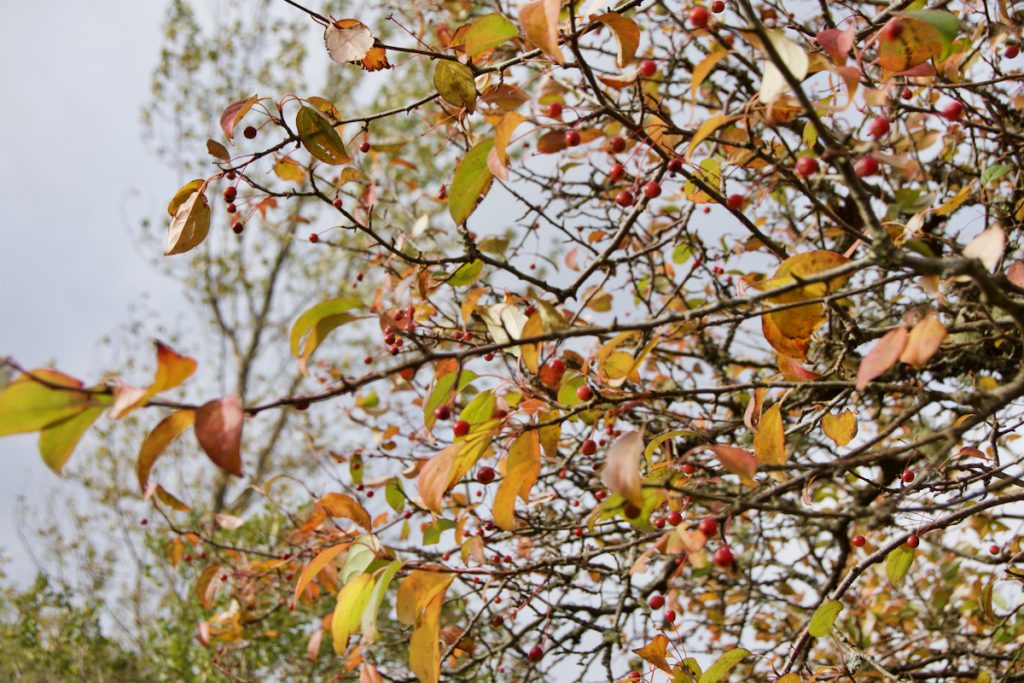
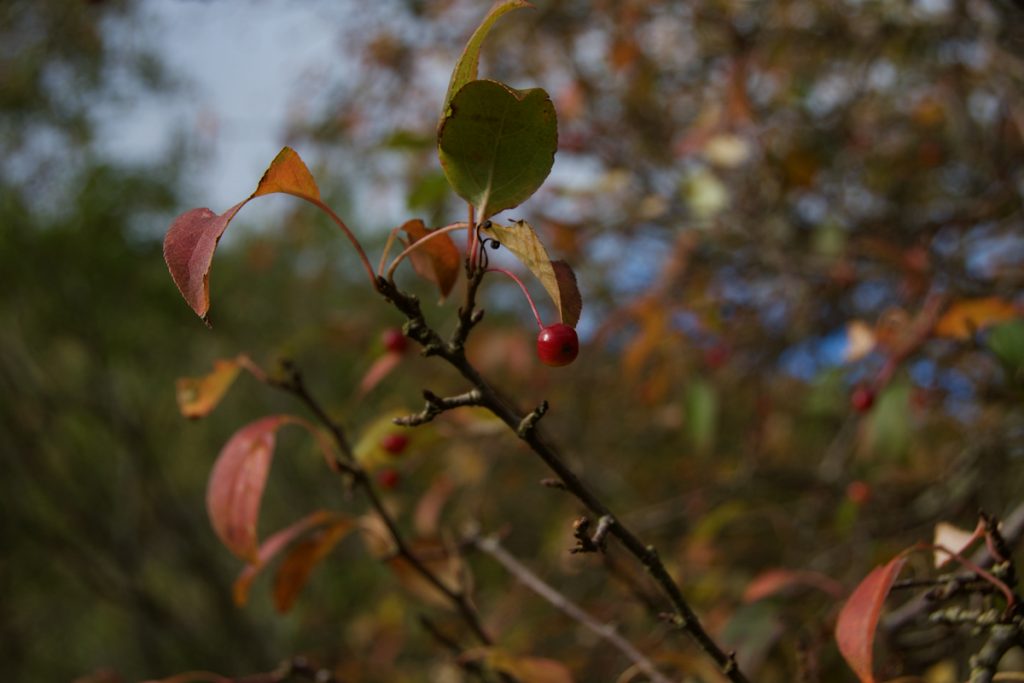 So… that whiled away a pleasant half hour or more, especially as there were fabulous views down towards Loch Avich, which was my main reason for wanting to go that way in the first place. For some reason, I fancied having another look at a castle that captured my imagination a couple of years ago, in spring when the wood anemones were out and everything was fresh and green. Caisteal na Nighinn Ruaibhe – the castle of the red-haired girl – stands on an island in Loch Avich, and has the most spellbinding story attached to it. I remember feeling that I’d somehow lost a day or two as I immersed myself in the legend of Annir and the two ill-fated rivals for her heart.
So… that whiled away a pleasant half hour or more, especially as there were fabulous views down towards Loch Avich, which was my main reason for wanting to go that way in the first place. For some reason, I fancied having another look at a castle that captured my imagination a couple of years ago, in spring when the wood anemones were out and everything was fresh and green. Caisteal na Nighinn Ruaibhe – the castle of the red-haired girl – stands on an island in Loch Avich, and has the most spellbinding story attached to it. I remember feeling that I’d somehow lost a day or two as I immersed myself in the legend of Annir and the two ill-fated rivals for her heart.
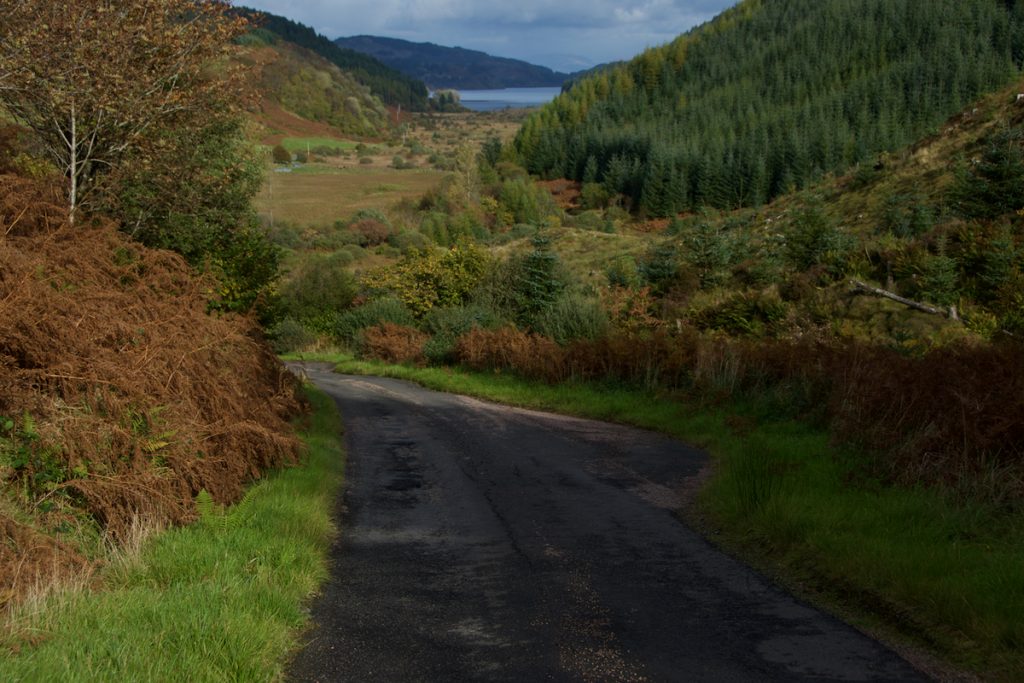
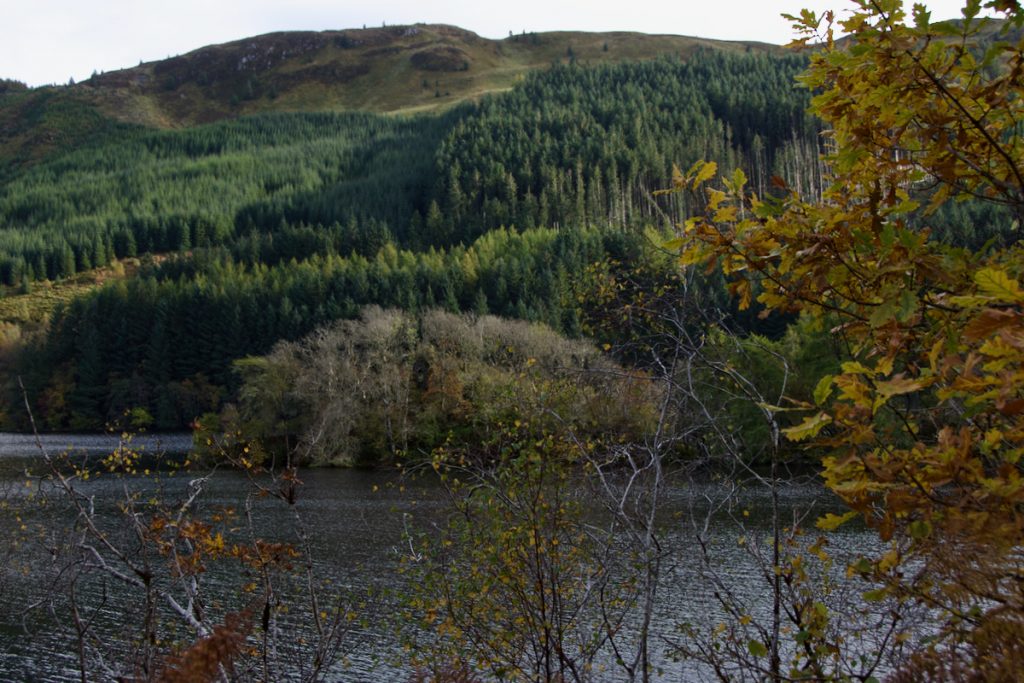
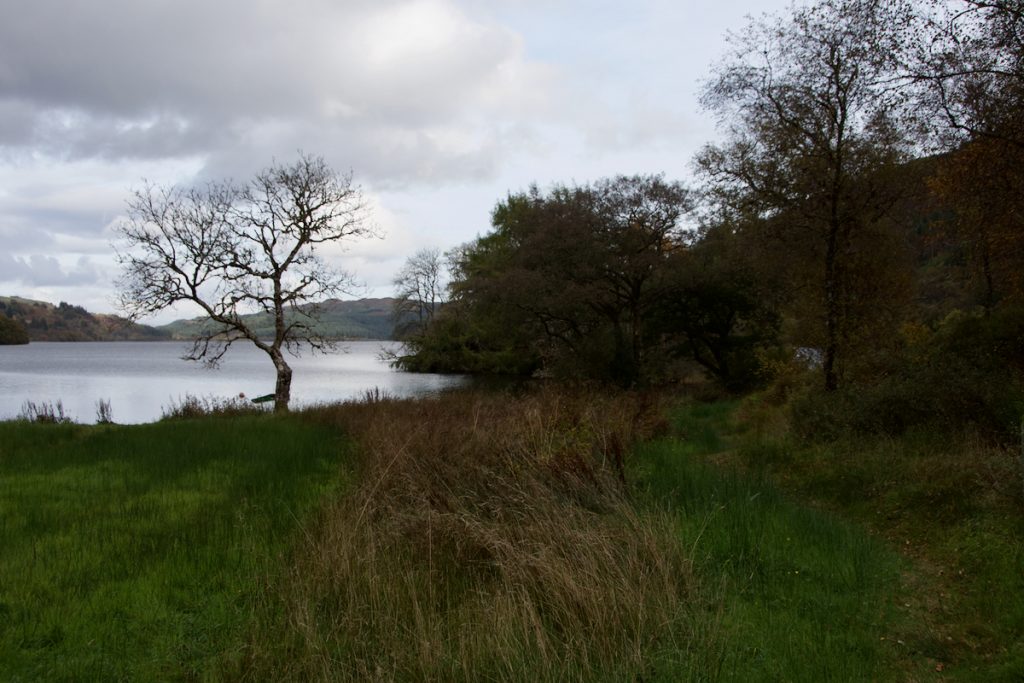 The ruined castle was no more visible than it was on that clear May day: the island is covered with trees, and a group of birches have made a kind of bower around the only visible fragment, as if protecting the secrets held within. All you see is a glimpse, and yet you could almost throw a stone to it. What is it about castles on islands? Like Avalon, they seem one step away from the human world – a refuge from time and mortality. That’s being fanciful, and I bet there are anglers who land there just out of curiosity! But I think I would rather admire it from a distance. I know the story, and that’s enough.
The ruined castle was no more visible than it was on that clear May day: the island is covered with trees, and a group of birches have made a kind of bower around the only visible fragment, as if protecting the secrets held within. All you see is a glimpse, and yet you could almost throw a stone to it. What is it about castles on islands? Like Avalon, they seem one step away from the human world – a refuge from time and mortality. That’s being fanciful, and I bet there are anglers who land there just out of curiosity! But I think I would rather admire it from a distance. I know the story, and that’s enough.
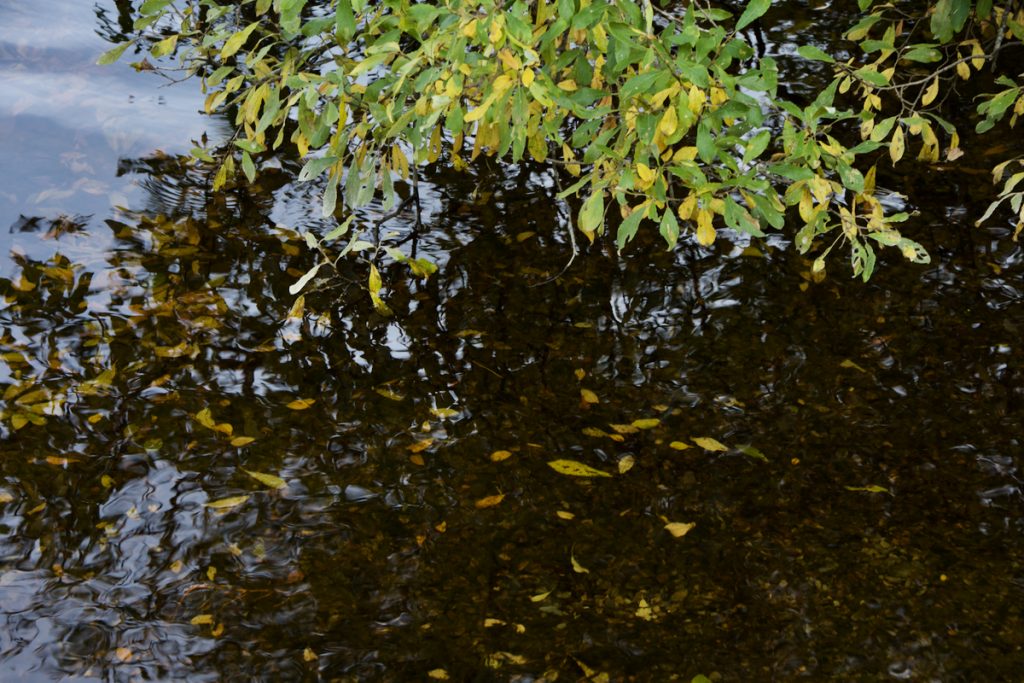 I contented myself with photographing willow leaves that were shedding themselves into the peat-brown water; on the hillside opposite, a burn was tumbling headlong towards the loch. It’s hard to describe the smell of autumn, but it was everywhere; how can decay be so fragrant? (For most of September it’s been impossible to stand outside without having your breath snatched away!) Meanwhile, the sun had lost itself in a bank of cloud and the bright colours of rowan and briar were muted. Birch trees, with just a few brave leaves still clinging, made delicate shapes against a background of watercolour grey.
I contented myself with photographing willow leaves that were shedding themselves into the peat-brown water; on the hillside opposite, a burn was tumbling headlong towards the loch. It’s hard to describe the smell of autumn, but it was everywhere; how can decay be so fragrant? (For most of September it’s been impossible to stand outside without having your breath snatched away!) Meanwhile, the sun had lost itself in a bank of cloud and the bright colours of rowan and briar were muted. Birch trees, with just a few brave leaves still clinging, made delicate shapes against a background of watercolour grey.
Home in the twilight… and this morning a sparkling frost, with deer roaring from the hills.
* If you have any suggestions about the trees, I’d be glad to hear them!
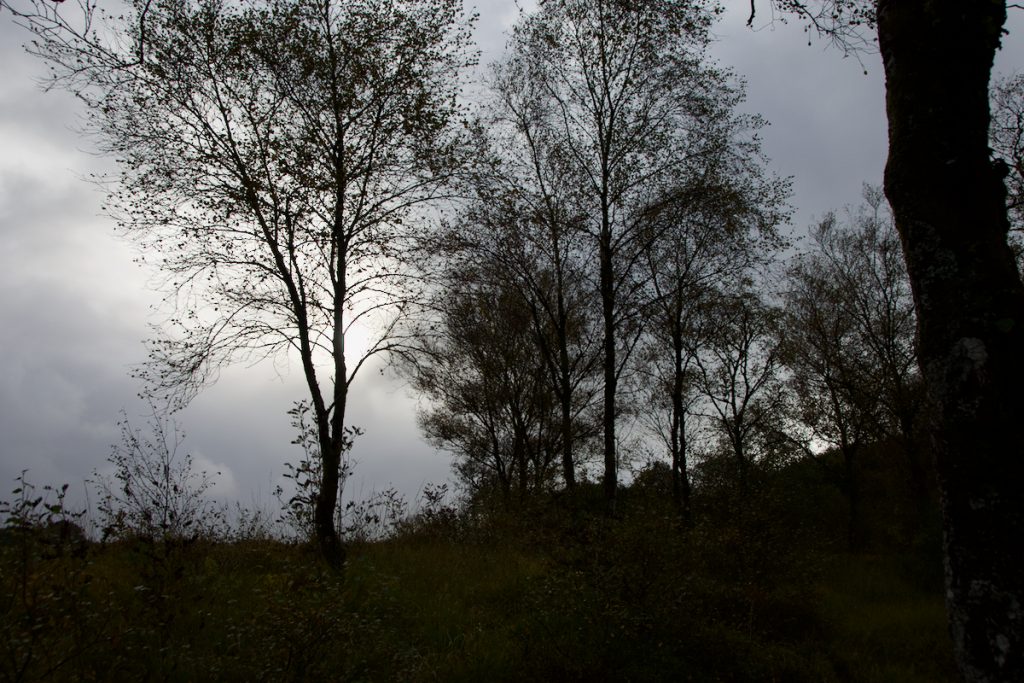
Photos copyright Jo & Colin Woolf
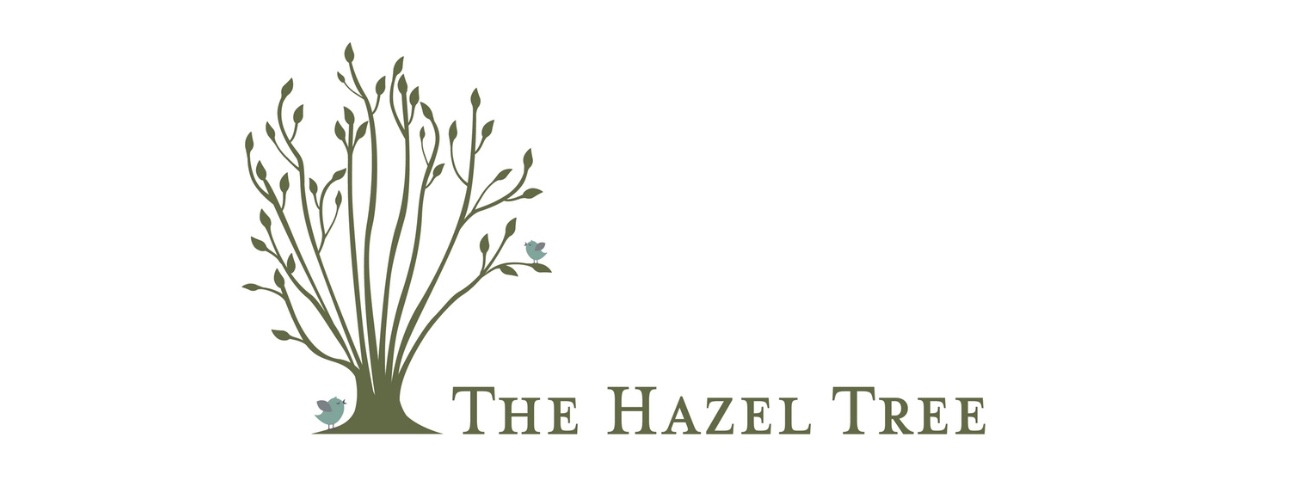
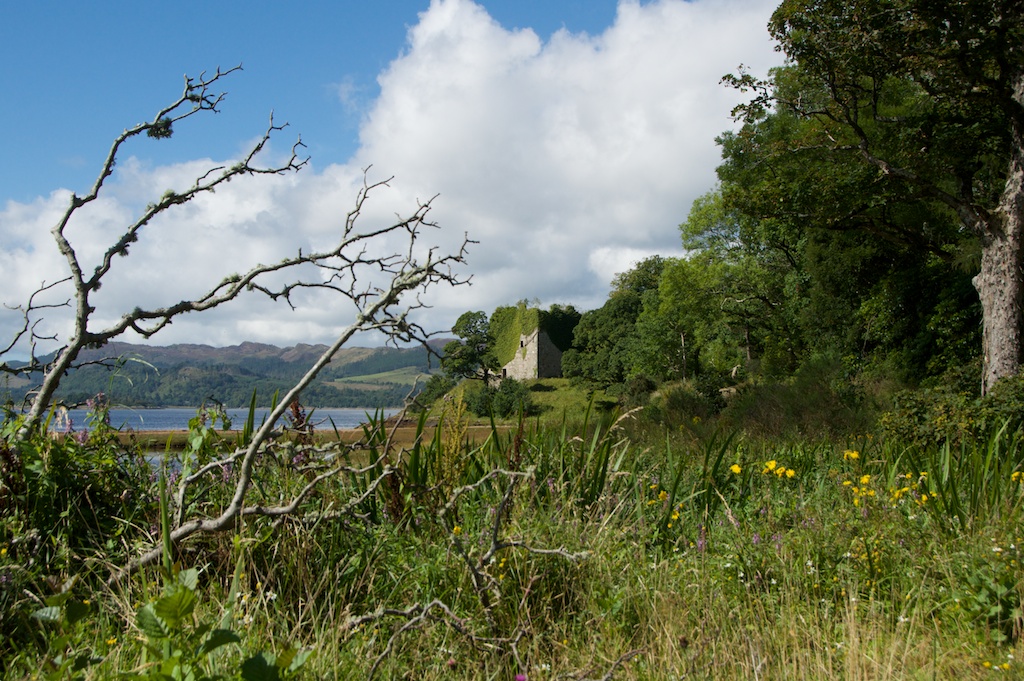
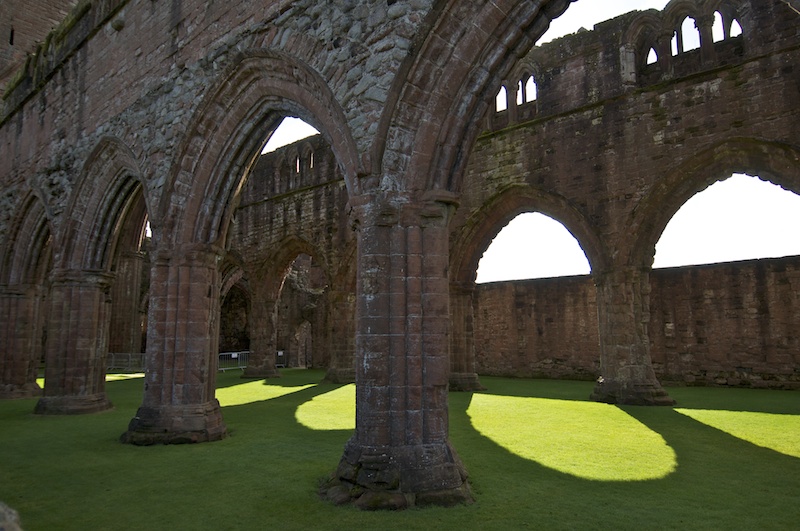
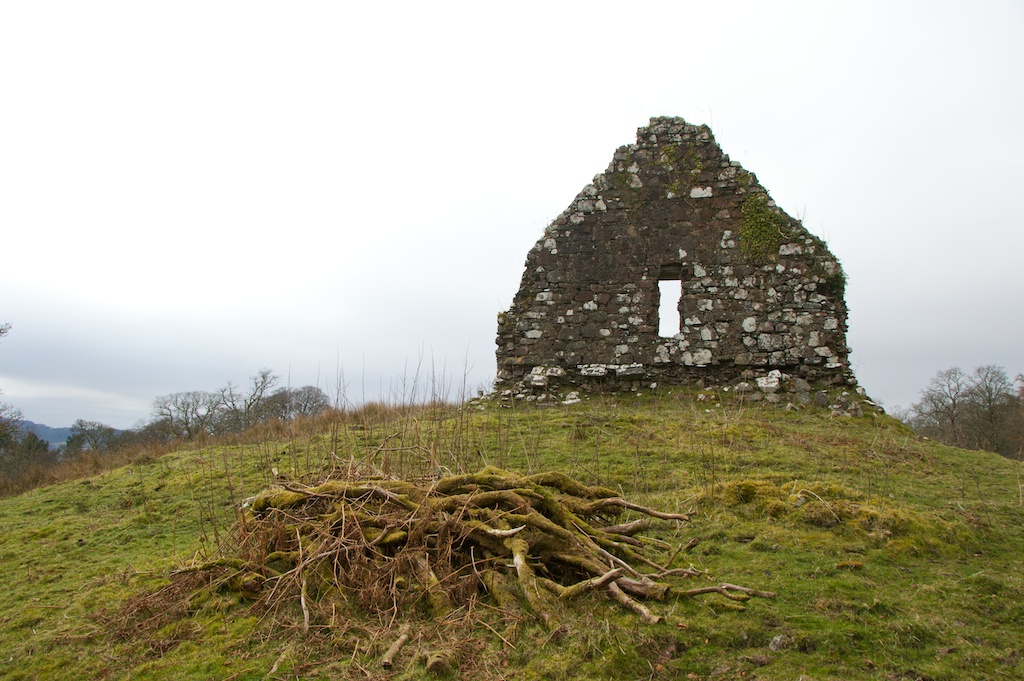
14 Comments
Cornell
Autumn brings an amazing light and very beautiful colours.
Very beautiful photos.
Jo Woolf
It does, Cornell, and it’s my favourite time of year. Thank you! 🙂
John Seddon
Maybe a dogwood?
Jo Woolf
Thank you! Sounds possible – although I’m not sure if it makes such a big tree. Will check out the berries!
dancingbeastie
Ah, I love this route! Rarely go that way but it is always special and holds happy family memories. The trees are fascinating, I have never noticed them before.
Jo Woolf
Glad you love it too! I know – it’s not a route we’d take if we were going anywhere, but that’s why it’s as beautiful as it is! We were fascinated by the trees – I’m not sure if we’ve solved the puzzle but it’s the nearest answer at the moment.
davidoakesimages
Gosh that brings back memories…… so long ago that I cannot remember exactly when we kept on going and going and going along the road that as you say goes to nowhere except opening up new vistas. But another route to revisit ‘sometime’ 🙂
Jo Woolf
It certainly does keep going and going! You lose all track of time! But so beautiful, like many of the old roads around here. It’s nice to think how many generations have walked along that road.
montucky
What a fascinating place that is to explore!
Jo Woolf
It really is! So many stories attached to these places, and they’re so undisturbed and beautiful.
Robert Turner
Thanks Jo. You transported me about 5800 KM again.
Jo Woolf
Most welcome, Robert! Glad you enjoyed the journey! 🙂
Lorna
Lovely photos. I remember you writing about that castle and I like the idea of getting so lost in the legend; it’s wonderful to feel transported like that. This autumn has been remarkably mild, hasn’t it, and the number of berries on the trees is striking. I suppose it’s because we had such a long, warm summer. We were visited by a large flock of redwings today, which I suspect means a change in the weather.
Jo Woolf
Thank you Lorna! Yes, a mild autumn but very wet and windy here – September/October have been very unusual in that way, according to local people. We’re seeing flocks of redwings too, and occasionally hearing deer roaring in the distance. There’s been a first sprinkling of snow on Mull, gone again now, but lovely to see!